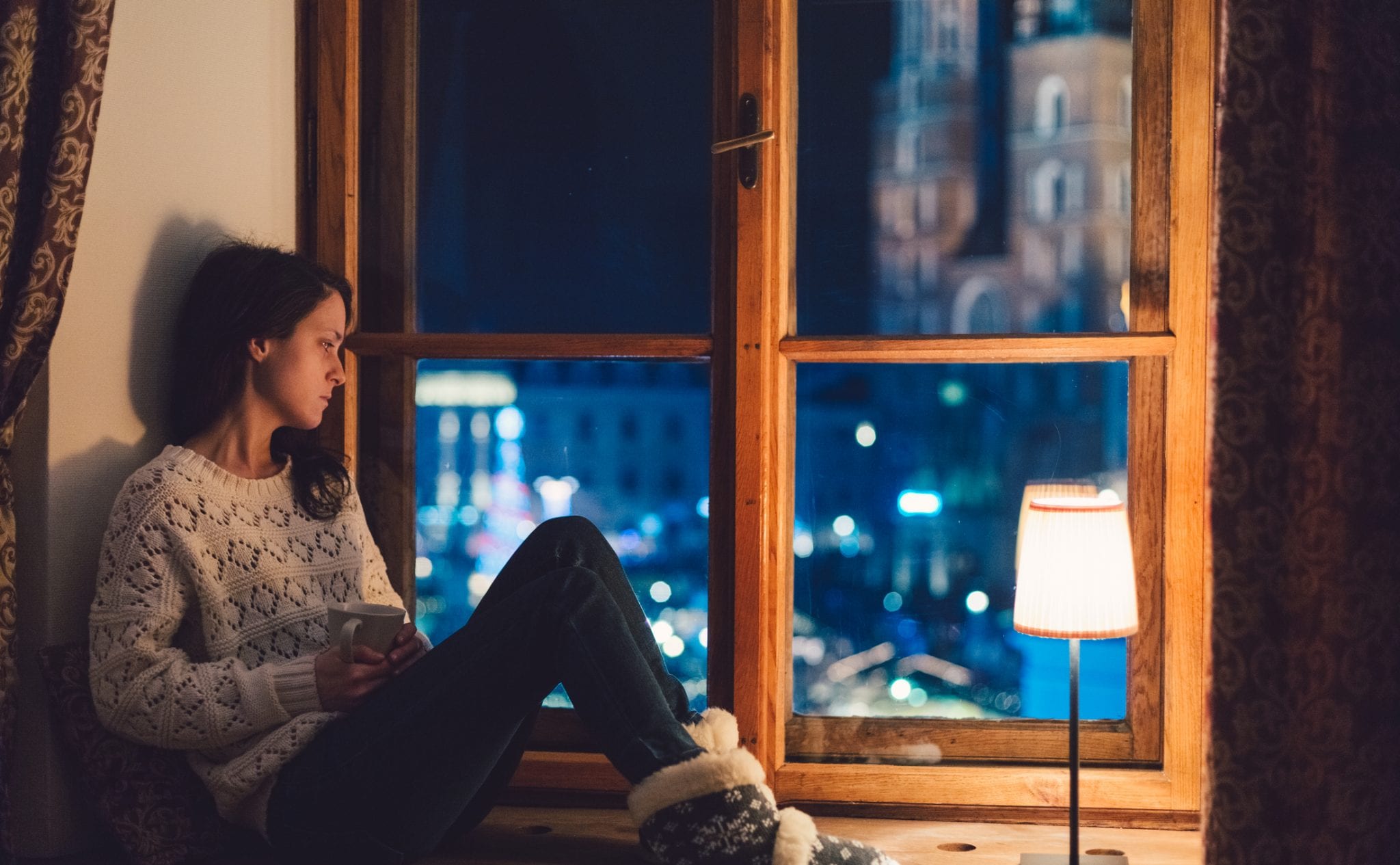8 Tips for Coping with Depression During the Holidays

November 25, 2019
Joy. It’s a word most would associate with the holiday season, yet for many of the 320+ million people worldwide suffering from depression, joy might feel nearly impossible this time of the year. According to one study, 38 percent of people surveyed said that their stress levels increased during the holidays.
The holidays tend to be a difficult time for those battling depression. Often this is because of triggers like increased stress, navigating family dynamics and burnout due to a packed schedule of holiday activities and commitments. There are certain coping mechanisms that prove helpful in managing depression during the holidays, but before we get into them, it’s important to remember that feeling blue -- or down and out – is different from suffering from depression*.
Those with depression are prone to certain, specific symptoms occurring for a particular length of time. According to the National Institute of Mental Health, here are some symptoms of depression to watch for, particularly when you have most or all of these symptoms every day for at least two weeks:
- Feeling sad or anxious
- Feeling guilty, helpless, or worthless
- Loss of interest in hobbies and activities that you enjoyed in the past
- Feeling hopeless
- Having less energy or feeling tired
- Too little or too much sleeping
- Having trouble concentrating or making decisions
- Changes in appetite or weight
- Feeling irritable or restless
- Thoughts of suicide or death
If you are suffering from depression heading into the holiday season, here are 8 tips you can use to help you cope:
- Pay attention to your symptoms & manage them early. If you’re someone who suffers from depression, the symptoms we discussed above are likely all too familiar to you. Be mindful of these symptoms beginning to surface, and try to be aware of the things you feel may be triggering them. For example, in the past if the stress of finances during the holidays has always triggered symptoms of depression, this year try to budget early and consciously save for the gifts you want to give.
- Surround yourself with a solid support system. Being around those who care most about you during the holidays can help ease depression symptoms, too. Try your best not to isolate yourself. Having your support system close by during the holidays will also ensure you have someone readily available to talk to you should those symptoms begin to surface.
- Keep your plans simple. Depression can suck up your energy and distort your sense of concentration. It’s also known to make decision-making incredibly difficult. Instead of stacking your holiday calendar with an overwhelming number of plans, including those that might involve great concentration and decision-making, focus on the simple activities. Set small goals for yourself, and do what you can.
- Be patient with yourself. Some suffering from depression during the holidays might think, “This is supposed to be a happy time of year. Why can’t I just feel happy?” But, setting unrealistic expectations of being happy around-the-clock during the holidays can often backfire. It’s important to set realistic expectations for yourself during the holidays, and not get discouraged.
- Exercise. Taking care of your body through regular exercise is beneficial to your health for many reasons, but did you know exercise can also help relieve symptoms of depression? So, get up and moving. Do your holiday shopping at the mall versus online to get in extra steps. Grab the shovel to clear your driveway of snow instead of using your snow blower. Walk the neighborhood with friends and do some caroling. Every little bit counts.
- Avoid drinking alcohol. If you’re feeling depressed, you might be tempted to use alcohol as a coping method… but don’t. In fact, alcohol can make the symptoms worse. If you anticipate that you might be tempted by alcohol at holiday parties or gatherings, think ahead. Don’t hesitate to bring your own non-alcoholic beverage (or even a mocktail) along with you.
- Remember to maintain a healthy diet. As discussed above, many times a symptom of depression is a change in appetite – either losing one’s appetite or wanting to eat more. To counter this, try to remain focused on eating a balanced and healthy diet. Likewise, if you feel you’re going to be tempted to overeat at holiday gathering, bring your own healthy options with you, or be mindful of portion control.
- Seek professional help. At the end of the day, remember to be honest with yourself. If your symptoms are escalating, seek help from your doctor. Find a physician you trust, if you have not already done so. Then, speak with your physician and share the feelings you tend to experience around the holidays and discuss treatment options. Additionally, you might also consider looking into local conferences or support groups and any helpful clinical websites and books.
Next Steps
- Jerry Joseph, M.D. is an attending psychiatrist at Hackensack University Medical Center.
- Learn more about the behavioral health and psychiatry services provided by Hackensack Meridian Health
*Please note that while feeling “blue” and suffering from depression are two different things, the former should also be taken seriously, as it can lead to clinical anxiety and depression, according to the National Alliance on Mental Health. Seek help from a physician when appropriate.
The material provided through Health Hub is intended to be used as general information only and should not replace the advice of your physician. Always consult your physician for individual care.
Source:
Find a doctor near me
What to Do When Coping Skills Don’t Work

Manage anxiety and stress? Dr. Markarian offers coping skills and strategies for better emotional well-being. Find support and resources now.
Telemedicine to Fill Mental Health Medications?

Running out of paper towels is a pain. Running out of medicine is an emergency. Learn more about telemedicine for behavioral health medication management.
Find a doctor near me

Helping Loved Ones Through Addiction
Some of the roughest times may be when a loved one is struggling with mental health and/or addiction issues - how do you help? Where do you start?

Why Routines are Important for Mental Health
Maintain good mental health with daily routines. Dr. Solhkhah shares simple routines to reduce stress and anxiety. Learn more and schedule an appointment today.

How Isolation Can Affect Cognitive Function
Combat isolation's impact on cognitive function. Dr. Kera offers tips for improved brain health & connection. Learn strategies to boost memory & focus.

Is Shortness of Breath Anxiety, Coronavirus?
A common symptom associated with both COVID-19 and an anxiety attack is shortness of breath. Our expert shares some of the similarities and differences between the two conditions.
